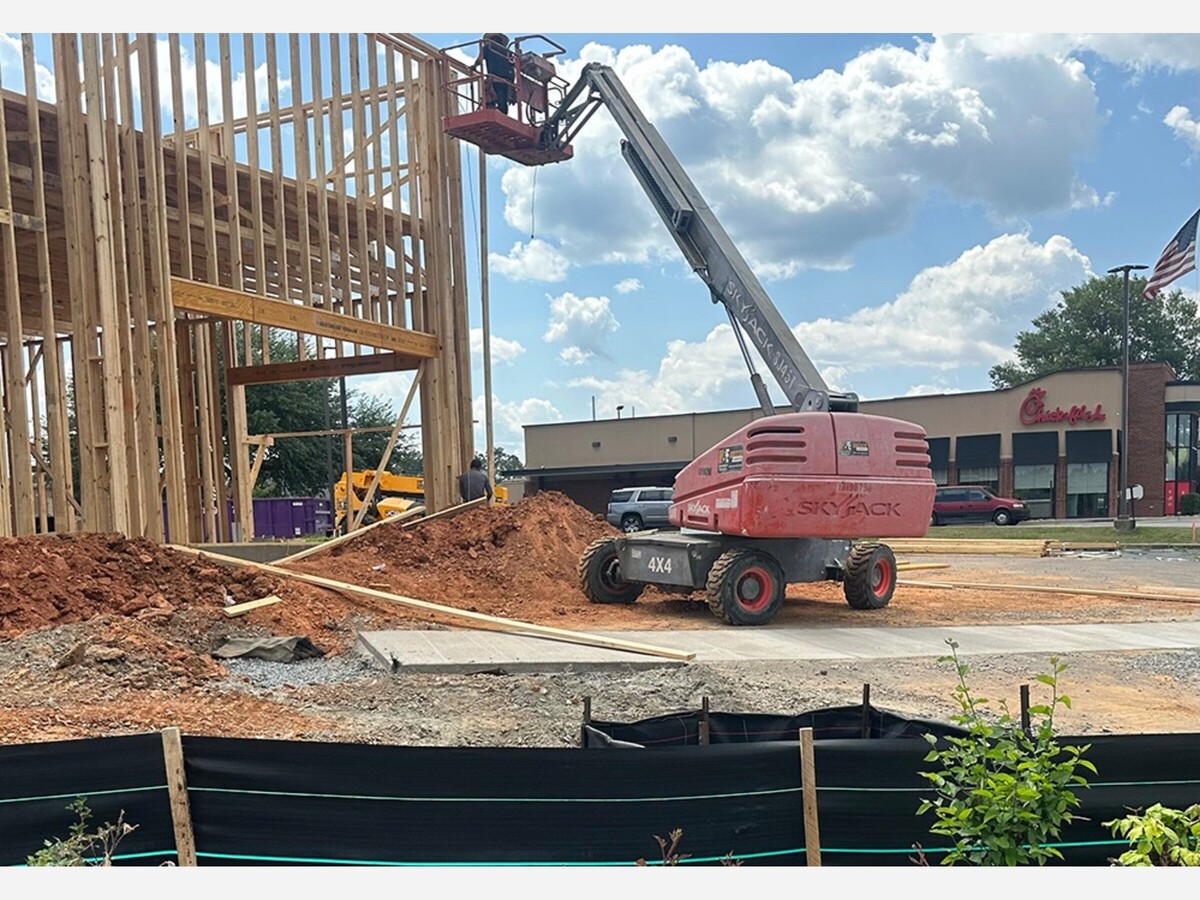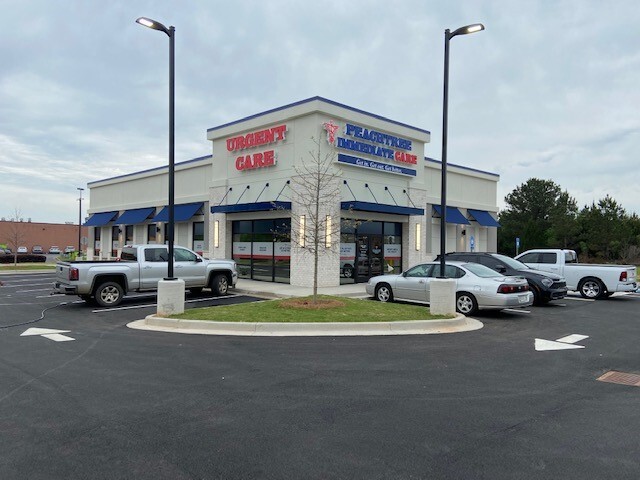Image

Work is continuing at a fairly brisk pace on a new building at 1720 North Columbia St., just south of Chick-fil-A.
Clocking in at roughly 3,600 square feet, the new building will be home to Peachtree Immediate Care, another urgent care center or "doc-in-a-box' business. Currently, Peachtree Immediate Care currently has 61 locations, all in Georgia. The overwhelming majority are in metro Atlanta, while there are three in Middle Georgia, all in Houston County.
Peachtree Immediate Care already has a web page for its "Milledgeville Urgent Care Center," which can be viewed here. The Milledgeville location will be open 361 days a year, according to the web page, closing only for New Year's Day, Easter, Thanksgiving and Christmas.
Peachtree Immediate Care earlier this spring opened a new location in Bonaire in Houston County. According to a press release, "(Peachtree Immediate Care) locations) are staffed by capable providers – board-certified physicians, physician assistants, or nurse practitioners – as well as highly trained clinical and support staff. Peachtree Immediate Care is continuously hiring for these positions in new as well as existing centers at crhhealthcare.com/careers. Urgent care services include treatment for injuries and illnesses that require attention but are not life-threatening. Examples include flu-like symptoms, strep throat, minor burns, pink eye, ear/skin infections, lacerations, STD testing and treatment, sprains, and more. In addition to urgent care services, the clinics also offer limited primary care and occupational health services, which includes physicals (e.g., pre-employment, annual, & DOT), worker's compensation injury treatment, and drug testing."

Peachtree Immediate Care in Bonaire
Peachtree Immediate Care is part of the Emory Healthcare Network, according to its website. "As part of the Emory Healthcare Network, Peachtree Immediate Care patients have access to a clinically integrated network of Emory-employed and private-practice physicians working together to create a single comprehensive care management system," according to the company. "While our providers and staff are not Emory Healthcare employees, our clinics are linked to Emory’s electronic medical records system for seamless patient care. If needed, urgent care patients who are referred to Emory Healthcare Network providers for additional or more complex treatment will already have a health record in the system, which is convenient for patients and the physicians alike."
CNN recently took an in-depth look at the rise of urgent care centers, which have actually been around since the 1970s. Milledgeville, for example, soon will have four different urgent care centers after having zero up until about 10 years ago. There are several reasons behind the rise of urgent care centers, according to the article:
"They have become more popular over the past two decades in part due to pressures on the primary care system. People’s expectations of wait times have changed and it can be difficult, and sometimes almost impossible, to book an immediate visit with a primary care provider.Urgent care sites are typically open for longer hours during the weekday and on weekends, making it easier to get an appointment or a walk-in visit.
"Health insurers and hospitals have also become more focused on keeping people out of the emergency room. Emergency room visits are around ten times more expensive than visits to an urgent care center. During the early 2000s, hospital systems and health insurers started opening their own urgent care sites, and they have introduced strategies to deter emergency room visits.


"Additionally, passage of the Affordable Care Act in 2010 spurred an increase in urgent care providers as millions of newly insured Americans sought out health care. Private-equity and venture capital funds also poured billions into deals for urgent care centers, according to data from PitchBook.
"Urgent care centers can be attractive to investors. Unlike ERs, which are legally obligated to treat everyone, urgent care sites can essentially choose their patients and the conditions they treat. Many urgent care centers don’t accept Medicaid and can turn away uninsured patient's unless they pay a fee."

